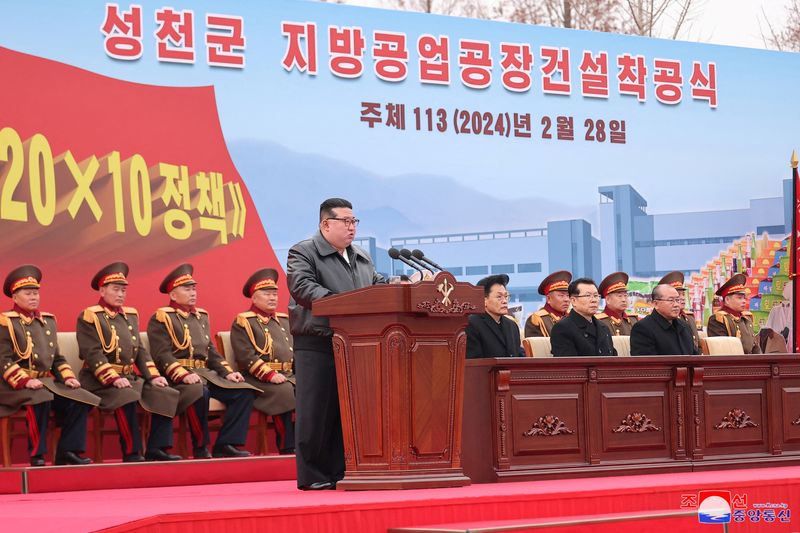North Korea’s economy surged in 2023 after years of contraction, South estimates
2024.07.25 23:13
By Jihoon Lee
SEOUL (Reuters) – North Korea’s economy grew sharply in 2023 after shrinking for three straight years as trade with China increased after COVID-19 pandemic border controls were eased, according to estimates by South Korea’s central bank.
Gross domestic product (GDP) in 2023 likely expanded 3.1% in real terms, the biggest percentage growth since 2016, the Bank of Korea (BOK) said on Friday.
The BOK’s estimates are considered among the most reliable indicators of economic activity in the secretive North, which does not publish official data.
“Although economic sanctions remained, the economy grew on eased COVID-related restrictions, growth in trade with China and favourable weather conditions,” a BOK official told reporters.
North Korea’s economy contracted by 0.2% in 2022, 0.1% in 2021 and 4.5% in 2020 amid COVID restrictions and U.N. sanctions.
During the pandemic, humanitarian groups raised concerns about food shortages for many North Koreans, and as recently as January leader Kim Jong Un said a failure to provide people with basic living necessities including food was a “serious political issue”.
“Most experts assess the rebound in 2023 to be temporary, but there are also positive factors, such as the possibility of further growth in trade with China and expansion in economic cooperation with Russia,” the BOK official said.
Pyongyang and Moscow agreed last month to expand cooperation in trade, economy and investment as they signed a mutual defence pact during Russian President Vladimir Putin’s first visit to North Korea since 2000.
In 2023, North Korea’s trade with China accounted for 98.3% of the total trade volume, according to the BOK.
The data showed industrial output jumped 4.9%, the fastest in seven years, led by production of metal items and wigs, and the construction sector grew by 8.2%, the biggest since 2002, on more housing projects. The agricultural sector increased by 1.0%.
The industrial sector accounted for 30.7% of the economy in 2023, while the agricultural and construction sectors accounted for 22.0% and 11.0%, respectively.
The North’s trade volume rose 74.6% to $2.77 billion in 2023, after growing by a record high of 123.9% in 2022, when the North started to ease border controls from the pandemic. The figure, however, was still lower than $3.25 billion in 2019 before COVID.
Its exports jumped 104.5% in 2023, led by shoes, hats and wigs, while imports rose 71.3% with a surge in demand for fertilisers.
North Korea’s nominal gross national income in 2023 was estimated to be 1.59 million won ($1,147.56) per capita, equivalent to just 3.4% of the South’s 47.25 million won.

The BOK has been publishing its estimates of the North Korean economy since 1991, based on information from various sources including intelligence and foreign trading agencies and data from the South’s unification ministry.
($1 = 1,385.5500 won)







